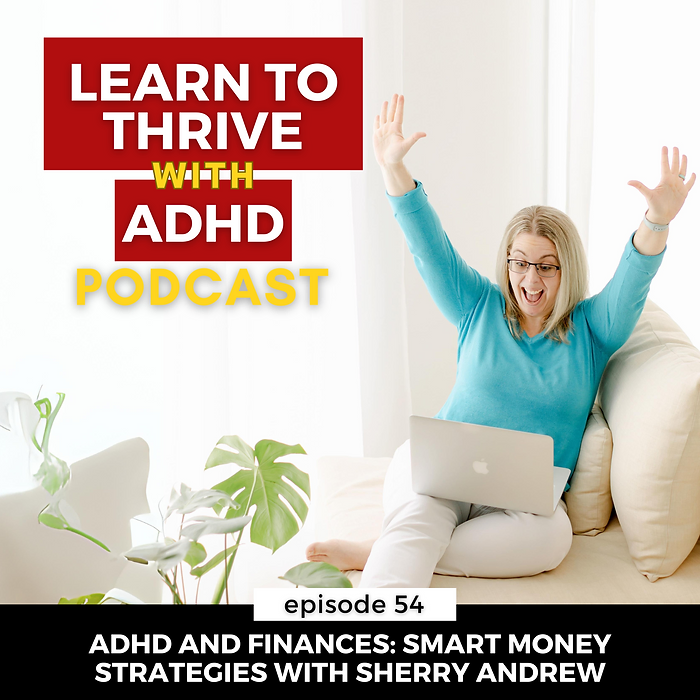Are you struggling with financial management? In this insightful episode, Sherry, a financial coach specializing in ADHD, delves into the complexities of managing finances when you have an ADHD brain. She explores how ADHD can impact financial decisions and provides practical strategies to help you overcome these challenges.
Learn how to break the cycle of impulsive spending, develop a budget that works for you, and build a healthier relationship with money. Sherry’s advice will help you transform financial stress into financial empowerment, allowing you to thrive both personally and professionally.
What you’ll learn:
- How ADHD entrepreneurs can leverage their resourcefulness to achieve financial goals.
- The importance of mindset in managing money effectively.
- Techniques for curbing impulse spending and managing online shopping habits.
- Tips for creating effective spending plans and using tools like Profit First.
- The role of communication in financial management within relationships.
“Instead of being like, ‘Where the heck did our money go?’, being able to have a plan and seeing that it leads to financial freedom and not restriction is really key.” -Sherry Andrew
Throughout this episode, Sherry shares actionable advice and personal experiences to help you harness your ADHD strengths for financial success. Whether you’re struggling with impulse spending or looking for ways to optimize your budgeting process, this episode is packed with valuable insights to help you thrive financially.
Useful Links Mentioned:
- Learn more about private coaching with Mande: https://learntothrivewithadhd.com/services/
- Free Resources: https://learntothrivewithadhd.com/freeresources/
- Website: https://www.learntothrivewithadhd.com/
- LinkTree: https://linktr.ee/learntothrivewithadhd
- Instagram: https://www.instagram.com/learntothrivewithadhd/
- Facebook: https://www.facebook.com/learntothrivewithadhd/
- Sherry’s podcast: The Mind and Money Podcast
- Book recommendation: “Profit First” by Mike Michalowicz
- App recommendation: Be Present (for reducing screen time)
- Learn more about working with Sherry: https://www.moneymindsetfc.com/
No matter how daunting managing finances might seem with ADHD, this episode is a powerful reminder that embracing your neurodiversity can lead to remarkable growth. Sherry, a financial coach with a focus on ADHD entrepreneurs, shares actionable strategies to help you align your financial habits with your unique brain wiring.
Share your biggest takeaways and “aha” moments with us in the comments or on social media. We’re here to support your journey toward financial empowerment!
Remember: By embracing your ADHD strengths and implementing personalized financial strategies, you can turn perceived obstacles into powerful advantages. Your financial future is in your hands, and with the right approach, you can thrive in a way that aligns perfectly with your authentic self.
#ADHDandMoney #FinancialFreedom #ADHDentrepreneur #MoneyMindset #BudgetingTips #ImpulseControl #ProfitFirst #FinancialWellbeing





